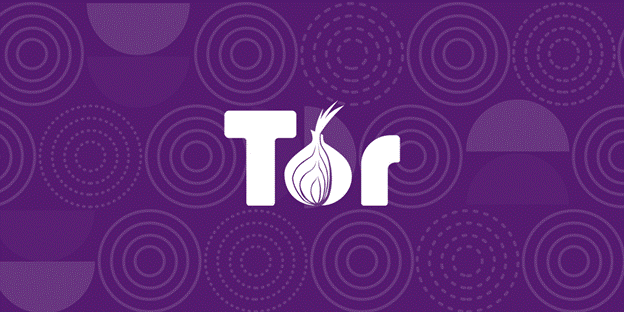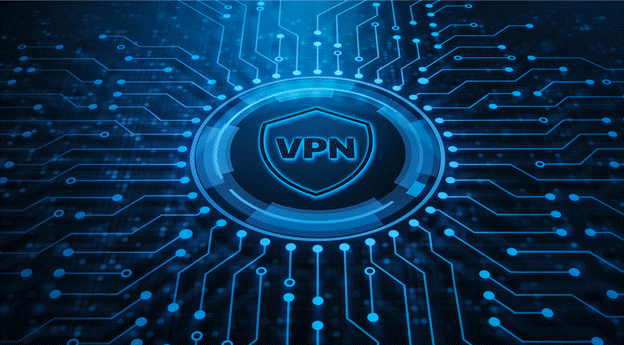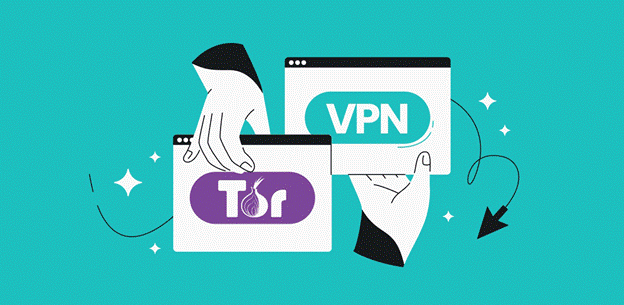All of us want to browse the internet without being tracked by cybercriminals, companies, and advertisers. However, there are so many options on the market that it can be difficult to pick one that’s right for your needs. two of the most popular privacy tools are Tor and VPNs They both offer strong encryption, but each has its own strengths and weaknesse. Free, open-source Tor software lets you browse the web anonymously (even the dark web). By routing your traffic through volunteer-run servers, Tor makes it difficult for anyone to track your real IP address. However, Tor can be slow and unreliable, making streaming or gaming a challenge.
You barely notice a difference in internet speed when you use a VPNbecause the traffic is encrypted and routed through a server in another location This is great for keeping you private and improving your security. However, a good VPNis expensive. What is the difference between Tor and VPNs? aims to compare and contrast tor vs vpn, helping readers understand their similarities, differences, and suitability for various anonymity purposes.
Understanding Tor
A free, open-source software program called Tor, short for “The Onion Router,” allows anonymous internet browsing. The Tor relay network routes your online traffic through volunteer-operated servers, ensuring that your entire browsing history remains private. Each relay knows only about the relays before and after it. Likewise to a VPN, Tor hides your IP address while providing you with access to the dark web, which is a part of the internet that can’t be indexed by search engines. Onion sites, also known as dark web sites, are a safe and anonymous way for journalists, activists, and others to communicate in oppressive countries.

People who need anonymity Internet service providers, government agencies, and hackers cannot track your online activities. This is also why criminals use Tor for illegal activities such as the sale of illegal goods and services. It is important to note, however, that Tor is slower and less efficient than standard internet browsing, partly due to sites blocking Tor. Also, your app and other traffic will not be protected by Tor, since it only works in the Tor Browser.
How does Tor work?
Whenever you use Tor, your data passes through three different nodes. This server is the first that receives your data. The middle node acts as a middle man between the entry and exit nodes. It knows your IP address because it initiates the connection from your device. By doing this, the exit node does not know the source (entry node) of the traffic, adding an extra layer of anonymity The exit node is the last server your data passes through before it reaches its destination. It’s very difficult for eavesdroppers and middlemen to track your online activities or identify you by routing your traffic through this series of nodes.
Users usually access the Tor network with the Tor Browser, which is based on Firefox but optimized for security and privacy. Instead of focusing on speed, Tor Browser protects your online anonymity and keeps you from getting tracked, like by fingerprinting you.
Advantage of Tor Browser
It is clear that using the Tor browser provides several advantages to those who are concerned about their privacy. Here is a more detailed breakdown of some of them:
Enhanced anonymity:
Enhanced anonymousness: Due to the multi-layered encryption and relay system, any attempt to gather information about your online activities is extremely difficult. Such anonymity can be beneficial in several ways:
- A safe environment for journalists and activists: They can securely communicate with sources and have access to censored information without fear that repercussions will be felt.
- Individuals in restricted regions: The Web is an excellent tool for individuals living in restricted regions because it provides them with the chance to bypass government censorship and access information that is otherwise blocked by their governments.
- Users seeking privacy: Tor enables you to browse the internet without being tracked by advertisers, data brokers, or even your internet service provider (ISP). This is extremely useful if you are concerned about targeted advertising.
The ability to bypass censorship
Tor can enable you to get access to information and websites that might be blocked in your location due to technology restrictions. This can be helpful for the following purposes:
- Getting access to educational resources: Students and researchers can access information that might be restricted in their region as a result of political or educational restrictions due to their geography or educational planning.
- Keeping informed: Even in countries with strict internet censorship, users living in areas without internet access can access news and information from all over the world.
- Exploring diverse content: A web browser such as Tor lets you access websites and services that may be geographically restricted, such as streaming platforms or social media sites.
Reduced online tracking
The Tor browser makes it difficult for advertisers, trackers, or other malicious software to follow your online activities across the web, which can benefit users who are concerned about one or more of the following:
- Targeted advertising:Designed to block targeted advertising, Tor lets you browse freely without being bombarded with advertisements based on what you have browsed.
- Creating an online profile: Tor makes it harder for companies and websites to build comprehensive profiles of you by masking your IP address and online activity.
Increased security
Increased The Tor VPNcan protect your sensitive information when you’re on public Wi-Fi networks. Public Wi-Fi networks are often unsecured, making your data vulnerable to intercepting. Tor encrypts your traffic, so hackers or snoopers can’t steal your stuff.
Potential drawbacks of Tor
Slow Connection
In addition to slowing down your connection, using the Tor network means going through several layers or nodes. Since nodes vary in bandwidth, there’s always the possibility of going through the slowest node, since the selection is random. If you’re looking to stream videos or access content that requires high speed connections, you shouldn’t use the Tor browser.
Potential Security Breach
Anyone running the exit node can easily see your data because it is decrypted, putting you in the hands of spies and hackers, particularly if you are not using an HTTPS connection. This makes it alarming since anyone can set up a node on their own.
Understanding VPNs
It creates a secure encrypted internet connection for users by providing them with a VPN, or Virtual Private Network. Your online data is protected by a tunnel that keeps hackers, government spying agencies, and internet service providers out of it. In this encryption service, all your online activities, including website visits and file downloads, remain private and confidential.

In addition to privacy, a VPNhides your real IP address by replacing it with a VPNcompany’s IP address. This protects your identity online, so that websites and advertisers can’t track you. It also helps you get around censorship and access restricted content, so you’re more free online. Corporate VPNs allow geographically dispersed employees to access company resources as if they were in the same office via a secure connection, providing data security and collaboration capabilities.
How does a VPNwork?
VPNs work by creating secure and private connections between your device and a remote server. Your data will be protected from prying eyes because the connection is encrypted. In order for websites and services you visit to see only the IP address and location of the VPNserver, not your actual location, the VPNserver acts as a proxy between your device and the internet. Process of VPNinclude:
1. Establishing a secure connection
Before you connect to a VPN, your device establishes an encrypted tunnel to a remote server. This tunnel is created using a tunneling protocol, such as OpenVPN, Lightway or L2TP/IPsec.
2. Encrypting data packets
Once you establish the secure tunnel, your data is encrypted before it is sent over the internet So that you do not have to worry about third parties intercepting your data or hackers reading it.
3. Routing through VPNserver
Once encrypted data has been routed through a VPNserver, it acts as a proxy between your computer and the internet. It means that the websites and online services you visit see only the IP address and location of the VPNserver, not your real IP address and location.
4. Enhancing anonymity
Several users share one VPNserver’s IP address, thus further enhancing your online anonymity Even if someone tracked your traffic back to the VPNserver, they wouldn’t know who was responsible.
Advantages of VPNs
Online privacy
When you connect to a VPN, your data is encrypted and your IP address is hidden, so webpages and online services you access will only see the VPNcompany’s IP address, so they cannot track your activities.
Advanced security features
With VPNs, you’ll be able to use advanced security features, including encryption, which makes your data much harder to intercept by hackers, and a kill switch that will cut your internet connection if the VPNconnection drops. This is especially important when using public Wi-Fi networks, since they are often not secure and hackers could intercept your data.
Easy to use
The VPNservices are relatively easy to use since most VPNproviders offer software in the form of apps that you can download on your mobile device. All you need to do is turn the VPNon or off to control it.
Installing on every platform
VPNs can be installed on Windows, Mac, Linux, iOS, and Android devices, making them a versatile tool that can be used by a variety of users.
Protects your whole device
You can use a VPNon a variety of platforms, including Windows, Mac, Linux, iOS, and Android. When you use a VPN, all data transmitted on that device is protected, including all browsing and applications on that device.
Potential drawbacks of VPNs,
Cost
It’s usually expensive to subscribe to a premium VPNservice. Although there are some free VPNoptions, they are often not privacy-focused and are mainly good for unblocking content instead. VPNservices will vary in price based on their features, the number of devices they are used on, and the length of their subscription plan.
VPNs are banned in some countries
There are some countries where VPNs are banned, such as those with strict censorship laws that view VPNs as a means to circumvent these laws. Therefore, if you use a VPNin a country where they’re banned, you can receive a fine as a result.
Slower speed
You can sometimes lose internet speed when using a VPN. This is because of several reasons, like encryption, routing, and server capabilities. When a VPNencrypts data, it also needs more time and processing power.
Comparing Tor and VPNs
Level of anonymity and privacy protection
While Tor is more interested in anonymity than privacy (hiding your online activities), a VPNis more concerned with privacy (hiding your online activities), although a no-log VPNwill also protect your anonymity by concealing your IP address and encrypting your connection.
Using a VPNwill encrypt your entire connection so every bit of traffic you send and receive will be encrypted and untraceable, while the Tor network anonymizes traffic within the browser.
It’s accessible through the Tor Browser, which anonymizes traffic within the browser. A VPNencrypts all your connections, so every bit of incoming and outgoing data is encrypted.
Censorship circumvention capabilities
By encrypting your connection with 256-bit AES, a VPNroute your traffic through a VPNserver and relocating your IP address to the country you want, a VPNcan help you stay anonymous. With a triple layer of encryption, Tor routes your traffic through entry, middle, and exit nodes. Additionally, it does not allow you to choose where your IP address will be, making it unsuitable for circumventing geoblocks.
Impact on browsing speeds and performance
Tor is extremely slow due to its layers of encryption, so page loading times are significantly longer with A VPN. You can usually get 10 Gbps servers with a VPNand get significantly faster online performance than Tor with a VPN.
Compatibility with different devices and platforms
A VPNis available for many devices and platforms, including Windows, macOS, iOS, Linux, Android, routers, gaming consoles, Android TV, Fire TV Stick, and several others. Tor cannot be installed on iOS, for example. But you can use VPNs on any devices.
Cost and availability (free vs. paid options)
There exists a free, open-source, Firefox-based browser called Tor Browser that is available to your use at no cost, whereas a VPNis a paid service that requires a subscription to use.
Ease of use
Manually setting up Tor on different browsers and setting up applications to go through the Tor network can be challenging. There are even options for using Tor on mobile devices, although there are some limitations.
When to Use Tor?
When it comes to browsing the dark web safely and securely, Tor Browser is the holy grail. With Tor Browser, you get access to sites that you couldn’t access using Chrome, Firefox, Brave, or any other browser. Moreover, people who wish to browse the internet anonymously often take advantage of this service. Since the connection cannot be traced to you, it’s a great way to ensure that you’re browsing the internet without being watched.
The Tor service is also extremely useful if you’re a whistleblower or journalist. You can share valuable data and information anonymously without leaving any online trace with this service. Just be aware that some sites can detect traffic coming from a Tor node. As a result, many sites actually block Tor traffic, so you might find yourself unable to access some of them if you use the exit node. Furthermore, these nodes are public, so your ISP and third-party companies can sometimes tell when you are using Tor without knowing what you are doing.
When to Use a VPN?
By changing your IP, replacing it with one from another country, and encrypting your entire connection, VPNs can be used for many purposes, including unblocking geo-restricted streaming platforms and accessing content that isn’t available in your country.
You’ll be able to hide your identity and your ISP and hackers won’t be able to track your browsing activities thanks to the 256-bit encryption. In public WiFi networks, where hackers are lurking, the VPNconceals your true IP address, preventing them from stealing your valuable data. In addition, VPNs are torrent-friendly, so you can download torrents safely with any torrent client Quality VPNproviders, such as ETherVPNcan bypass censorship in places like China and Iran where Tor doesn’t work.
VPNs also hold many other benefits, such as protecting you from DDoS/swatting attacks, allowing you to save money on purchases online, circumventing firewall restrictions at work or school, and bypassing firewall restrictions at schools. When you choose a provider that doesn’t store any logs and has a certification from a third-party security company, you can achieve two things at once. In other words, you can ensure total privacy AND anonymity, since no one will be able to track your online activity or identify you.
Factors to Consider When Choosing Between Tor and VPNs
Required level of anonymity and privacy
Your entire operating system remains exposed if your browser traffic is only encrypted, which could reveal your real IP and location to third parties. That means your documents, torrent clients, updates, etc. Your traffic and real IP address are exposed to the unencrypted internet you won’t have with a good VPN. The concept of anonymity is closely related to the previous section on security and how strong the encryption that underlies the system is against exploits that can de-anonymize the user.
Compatibility with different devices and platforms
When considering between tor network vs vpn, you should pay close attention to compatibility with different operating systems to find out if you can use the program to bypass sanctions on the platform in question.
Budget and willingness to pay for a premium VPNservice
Another factor that you should pay attention to during tor vs VPN is your budget to remove the restrictions. If you need a free program, you should come to the tour; But if you prefer security and high speed along with the cost, you should come to VPN.
Specific regional or legal considerations
The last factor to tor vs VPNis the use of the program in the area you want, it is possible that VPNor Tor is blocked in your area, so you should be very careful about this issue.
Conclusion
When you want to choose between Tor and VPN, evaluating individual needs and priorities when choosing between VPNvs tor for anonymity purposes is very important. Because both tools have their strengths and weaknesses, the choice ultimately depends on factors such as the level of anonymity required, the intended use case, and the user’s t Therefore, before making any choice, research and compare different Tor and VPNsolutions, considering factors like features , reputation, and privacy policies, to make an informed decision. If your choice vpn, you can come to download VPNEsther.

